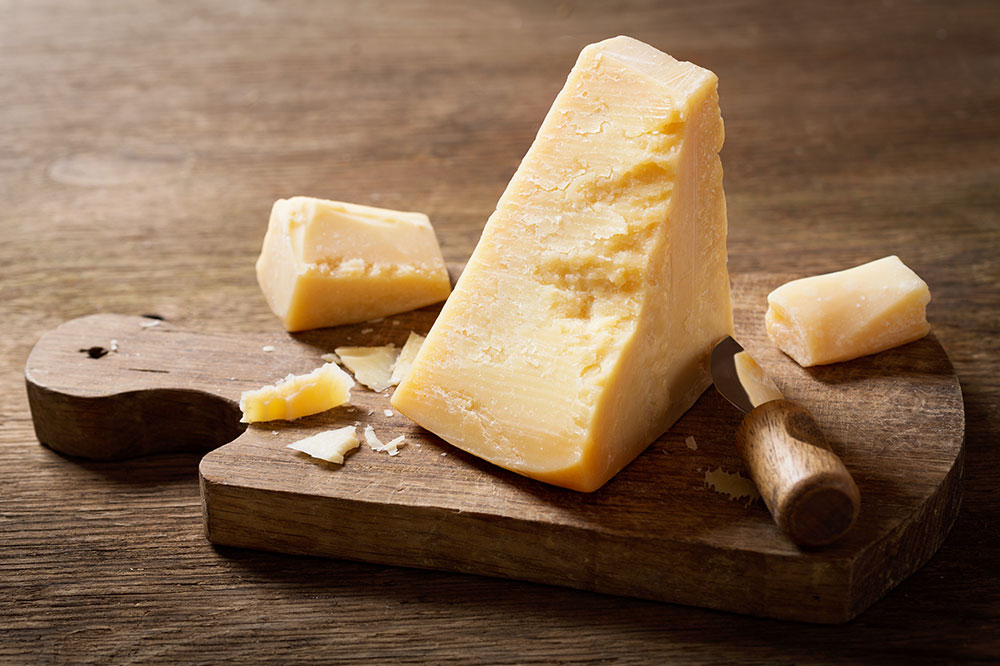
Foods to avoid for managing migraine headaches
Migraine headaches cause severe throbbing pain, typically on one side of the head. They may also lead to nausea, vomiting, and sensitivity to light and sound. These headaches can affect one’s daily routine depending on the severity. While many things can cause a migraine episode or worsen the symptoms, some foods act as a common trigger. The reactions to these foods may occur immediately or within 24 hours of intake.
Aged cheese
Aged cheeses like Swiss, Parmesan, Brie, and cheddar are rich in a natural chemical called tyramine. High amounts of tyramine can lead to a migraine headache, as it interferes with the functioning of blood vessels. Tyramine has also been linked to high blood pressure. Other foods rich in tyramine are pickled and fermented foods like kimchi, kombucha, pickled okra, or pickled jalapenos. Citrus fruits like lemons, limes, oranges, grapefruits, tangerines, pineapples, berries, and tomatoes are also foods to avoid with migraines due to the presence of tyramine.
Caffeine
The role of caffeine in managing migraine headaches is ambiguous. It can trigger headaches if consumed in excess or when experiencing withdrawal. At the same time, caffeine has been associated with the treatment of migraine headaches in some cases by the American Migraine Foundation. Studies have looked into the usefulness of caffeine in combination with other treatments to relieve these headaches. To avoid caffeine-triggered migraines, people must carefully watch their caffeine intake. Beverages rich in caffeine include tea, coffee, soft drinks, and energy drinks.
Chocolate
According to the American Migraine Foundation, chocolate is among the biggest triggers of migraines, affecting around 22 percent of patients. Chocolate contains beta-phenylethylamine and caffeine. An increased concentration of beta-phenylethylamine in the body is reported to restrict cerebral blood flow, leading to the development of a migraine. Migraine sufferers may also have a reduced ability to break down monoamines like phenylethylamine, thus triggering headaches.
Food preservatives
Foods with preservatives like monosodium glutamate (MSG) or artificial sweeteners have been closely linked to migraine headaches. MSG naturally occurs in our bodies, but it is also a common addition to fast food, chips, seasonings, frozen meals, condiments, and instant noodles. Although labeled safe for consumption, the umami compound in MSG has been known to work as a neurotransmitter, triggering migraines. In some people, artificial sweeteners like aspartame and saccharin may trigger migraine headaches. So, it is advisable to opt for natural sugars over artificial sweeteners.
Cured meats
Cured meats, like deli meats, ham, hot dogs, and sausages, have color preservatives that contain nitrates. Consuming nitrates can release nitric oxide in the blood. This can cause the blood vessels in the brain to dilate, triggering a migraine headache. Cured meats are also high in tyramine.
Nuts and nut butters
Nuts, like almonds and peanuts, and seeds contain tyramine. While they are a food to avoid with migraines, not all migraine sufferers are sensitive to nuts. Trying the elimination food plan as suggested by a health professional may help identify if nuts are a potential trigger.
Soy products
Soy products like tofu, miso, tempeh, and soy sauce contain tyramine and MSG, potential migraine triggers. Additionally, soy products also contain high levels of salt, which have been linked to dehydration and, consequently, headaches.
Yeast
Studies have found a correlation between foods containing yeast and migraine headaches, mainly due to the presence of tyramine in yeast. Common foods to avoid under this category are sourdough bread and fresh-baked goods like cakes and donuts.
Maintaining a food diary can help understand the underlying cause of food-triggered migraine headaches and help manage the problem. Just like some foods trigger migraines, others have been recognized as migraine safe by the Association of Migraine Disorders. These foods generally do not contain preservatives, yeasts, artificial flavorings, and other triggering substances. Eating multiple smaller meals instead of a few large ones can help a person feel full, preventing hunger-triggered migraine headaches. Not eating for prolonged periods or skipping meals can also lead to migraine symptoms. Constant hunger causes low blood sugar levels, which has been linked to hunger headaches.
Food plays a significant role in triggering and managing migraine symptoms. However, these factors differ from individual to individual, and understanding them may take time. Working with a doctor or nutrition specialist can help identify potential triggers and formulate a healthy food plan to avoid migraine headaches in the future.


